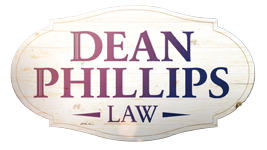The penalty for hit-and-run in Georgia is very stiff, especially if the hit-and-run accident caused death or serious injury. In these cases, hit-and-run is a felony that carries up to five years in prison. In all other cases, the hit-and-run penalty is a misdemeanor ($300 to $1,000 fine, which cannot be probated, twelve months in jail, or both).
Additionally, the court may impose restitution if the judge finds the defendant caused an “economic hardship.” Significantly, if the defendant doesn’t pay restitution as directed, “such order may be enforced through a contempt proceeding or a revocation of any probation.”
However, before the court imposes these harsh hit-and-run penalties, the state must prove every element of the offense beyond a reasonable doubt. As outlined below, hit-and-run has a lot of moving parts. If a Marietta criminal defense lawyer creates a reasonable doubt on any one point, the defendant is not guilty as a matter of law.
Stop as Close as Possible and Return “Forthwith”
The defendant must stop as closely as possible and also as safely as possible. Many hit-and-run accidents, especially pedestrian hit-and-runs, occur in unlight areas. These areas aren’t safe areas. Furthermore, according to the law, the defendant must stop “without obstructing traffic more than necessary.” So, if the accident happened on a busy street or a highway with no shoulder, the defendant is legally required to stop somewhere other than at the accident scene.
“Forthwith” is an interesting word that’s hardly ever used today. Generally, forthwith and immediately are synonymous. But if lawmakers had meant to use immediately, that’s the word they would’ve used. So, to a Marietta criminal defense lawyer, “forthwith” in the hit-and-run law related back to safety. The defendant must stop as quickly and as safely as possible.
Furnish Information and Display Information
This requirement varies significantly in different states. Many people understandably don’t want to provide personal information to complete strangers.
Georgia law requires drivers to furnish their names, addresses, and vehicle registration numbers to other drivers involved in accidents. This information must be complete and unredacted. Technically, furnishing the registration number with everything but the last four digits redacted could be hit-and-run in Georgia.
Drivers must also display their drivers’ licenses. They need not display them long enough to allow the other driver to take a picture of the license or write down the information on it.
Render Aid
Similarly, many states have different requirements in this area. Georgia requires drivers to give all “reasonable” assistance, including transportation, or transportation arrangements, to a hospital if it’s “apparent” the other driver needs “medical or surgical treatment.”
If the other driver is unable to get out of the vehicle and/or shows physical injury symptoms, s/he apparently needs medical treatment. Bleeding is a serious injury symptom. Soreness is soreness. If, on the other hand, the other driver gets out of the vehicle unassisted, s/he apparently doesn’t need medical treatment. Everything else is in a grey area.
If a Marietta criminal defense lawyer offers a reasonable alternative explanation, the jury almost never concludes, beyond a reasonable doubt, the state proved that particular element of the offense.
We recommend that drivers offer to call ambulances. Most people don’t want big ER and ER transportation bills, so they decline such offers. If that’s the case, you’re off the hook, at least regarding the “apparent” injury element.
Call 770-499-3911
Drivers only have a duty to call police if “a person injured in such accident is unconscious, appears deceased, or is otherwise unable to communicate.” People who babble or are confused can communicate. They just can’t communicate well.
Furthermore, according to the law, drivers never have a duty to call 9-1-1. Instead, they must contact “emergency medical services and local law enforcement. . .for the purpose of reporting the accident and making a request for assistance.” This requirement says nothing about summoning help “forthwith.”
These requirements are narrow and also difficult to prove. Proof hinges on the driver’s medical condition, and not the driver’s physical appearance of injury, at least in most cases.
Frequently, such evidence is unavailable. As mentioned, many people decline assistance because they don’t want to pay for it. A Marietta personal injury lawyer faces this issue in many car crash cases. Furthermore, if there’s a line at the ER or a doctor doesn’t see them forthwith, some people go home instead of waiting. As a result, the state can prove the driver went to the ER, but can’t prove the extent of the person’s injuries, at least beyond a reasonable doubt.
Remain at the Scene
Drivers must remain at the scene until they make the required assessments and phone calls. Then, they’re free to leave. In many states, all drivers must remain at accident scenes until emergency responders officially release them.
We should add a few words about Georgia’s Good Samaritan law. Anyone who renders assistance in good faith is immune from civil liability. This assistance could include damaging property.
“Good faith” is another difficult-to-define phrase which basically means without mixed motives, or at least primarily without mixed motives. Furthermore, people who knowingly or recklessly make thew situation worse, such as moving a victim with a back injury, usually don’t act in good faith. Personal safety comes into play as well. If Tim starts helping Amy and her car catches fire, Tim, in good faith, may be able to run away without Amy.
Significantly, Georgia’s Good Samaritan law also protects “any person licensed to practice medicine and surgery.” However, the good-faith standard is higher in these cases.
Georgia’s hit-and-run law is very complex. For a free consultation with an experienced Marietta criminal defense lawyer, contact The Phillips Law Firm, LLC. The sooner you reach out to us, the sooner we start working for you.



 Multiple People Shot in Nightclub Fracas
Multiple People Shot in Nightclub Fracas